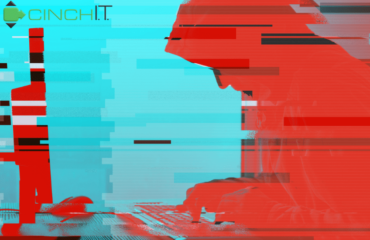As the global COVID-19 pandemic continues to disrupt the U.S. economy severely, cybersecurity has become more crucial than ever. Working from home is no longer a periodic benefit for many Americans but a requirement for many businesses to stay open. However, operating safely and effectively from a remote setup involves extra security measures. While working from home does come with its perks, employees who transition to a separate environment often create unintentional cybersecurity risks.
ALL employees must be familiar with their company’s expectations when working from home. But beyond that, employees must also practice safe cybersecurity to ensure their data stays protected. If your business has a way to remain open during the quarantine, your staff should have a clear Remote Work Policy that details those expectations. Send this policy to all affected staff, and once they read the policy, ask them to sign off on the agreement formally.
Although working from home allows you to decentralize your daily tasks during a crisis, keep in mind that this benefit depends on your employee accessing their data securely. Your business continuity plan should include instructions on login credentials, file storage, and communication. If your policy leaves any gaps in your cybersecurity, your entire disaster recovery could backfire.
Here are some tips on how to safely work from home.
1) Understand best practices.
If your organization has an ongoing training program, make sure you’re actively participating. Scams like phishing only INCREASE when employees work remotely – you must stay in the know on current threats and best practices.
2) Understand your organization’s policies and procedures.
If you’re working remotely, your organization should have a Remote Work Policy. Make sure that you’ve read and understood that policy so you can meet cybersecurity guidelines. You should continue following ALL company policies and procedures as if you were still in the office.
3) Don’t use public Wi-Fi.
You should always conduct work from a secured network, ideally in a home environment and with company equipment. We also highly recommend connecting to your company’s network with a Virtual Private Network (VPN). If you’re unsure of how to do that, contact your company’s I.T. consultant for instructions.
4) Keep all software up-to-date.
Updates and patches often address security flaws and other risk factors in your company’s software. Updating all of your company devices is the first step in preventing unauthorized access.
5) Use only company-approved devices for work.
Whether you’re using a laptop, smartphone, or tablet, you should clear all equipment used with your immediate supervisor. Furthermore, don’t let friends or family members use any of your company-issued devices.
6) Don’t use your company-issued device for personal use.
Stay off social media, shopping sites, or any other personal bookmarks you might visit in your free time. You should only be performing company-related tasks on official equipment.
7) Be mindful of where you save files and data.
Don’t save files on your local or personal hard drives that may be more likely to be breached.
8) Back up your files.
If you’re unsure of your company’s backup procedure, contact your supervisor or I.T. It is imperative to back up your work. That way, if a local loss occurs, data can be more easily recovered.
9) Use strong, unique passwords.
Make sure your passwords for your device and all of your accounts are strong and unique. Never reuse the same password across multiple accounts, and do not share your passwords with others.
10) Lock screens when not in use.
This practice helps limit any unauthorized access to the information you may still have open on your system. Company devices should only be powered on during work hours and should promptly shut off at the end of your workday.
Cybersecurity Compliance Made Easy
These are just a few of the best cybersecurity recommendations for working remotely. Depending on your industry, you should still speak with your immediate supervisor to ensure you’re obeying company protocol. Smart cybersecurity doesn’t take a break when the office is empty. For example, healthcare employees have to protect patient data per HIPAA, meaning cybersecurity is even more sensitive than ever.
If you need a managed service provider and I.T. partner to help you navigate these guidelines, contact Cinch I.T. today for a free consultation.
Stay Socially Connected
Connect with Cinch I.T. on Facebook, Twitter, and LinkedIn using the hashtag #cinchit.
About Cinch I.T.
Since 2004, Cinch I.T. has been providing customer-focused I.T. services for businesses of all sizes. Every element of its support offers managed I.T. services with the fastest and friendliest computer support in the industry! Cinch is one of the nation’s fastest-growing I.T. franchises with 7 locations. To learn more, visit cinchit.com. For more information about franchise opportunities, visit cinchfranchise.com.



![How CMMC 2.0 Impacts Managed Service Providers & Small Businesses [BANNER] How CMMC 2.0 Impacts Managed Service Providers & Small Businesses - managed service providers, CMMC 2.0, cmmc compliance, business I.T. support, managed I.T., computer support](https://cinchit.com/wp-content/uploads/2022/01/How-CMMC-2.0-Impacts-Managed-Service-Providers-Small-Businesses-BANNER-370x240_c.png)